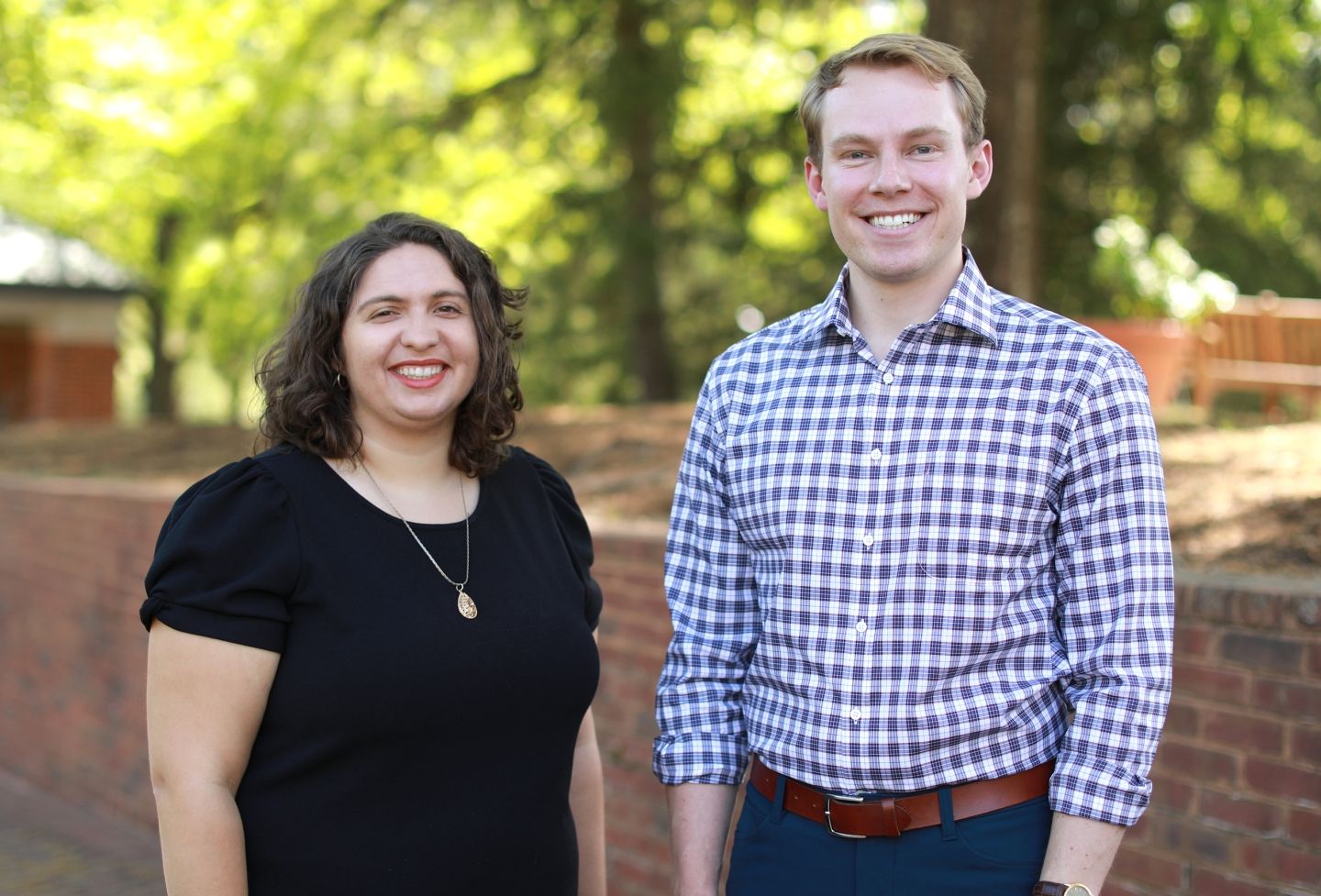Aspiring appellate lawyer Hunter Heck ’24 found her voice as an advocate first as undergraduate student body president and then as a moot court finalist at the University of Virginia School of Law.
Set to graduate from the Law School on May 19, Heck served as articles development editor for the Virginia Law Review, vice president for professional development for the Federalist Society and mentorship co-chair for Virginia Law First-Generation Professionals. She was also a research assistant to Professors A. E. Dick Howard ’61 and Saikrishna Prakash. Heck received the James M. Shoemaker, Jr., Moot Court Award as a finalist in the 95th William Minor Lile Moot Court competition.
The Panhandle, Texas, native earned a bachelor’s degree in philosophy and Spanish from Texas Tech University.
In our occasional series “Star Witness,” Heck discussed her path to law school and how she tackled the Lile Moot Court competition.
Tell us something about your life before law school.
I’m from a small town. Like, really small town (population: 2,361). It was a close-knit community, and everyone knew everyone. I participated in every sport (though we didn’t have many) and every extracurricular activity because there was literally nothing else to do. I loved growing up there. More than anything, I learned the value of community and the merit of hard work and grit. But I always knew that I wouldn’t spend my whole life there. I dreamed big and dreamed often — but I never dreamed of going to law school. It wasn’t until college that law school serendipitously piqued my interest.
Why law school?
My first year of college, at Texas Tech University, I was enrolled in a public speaking course and assigned to present a persuasive policy speech about any issue impacting the campus. Identifying a problem, researching its source, structuring arguments and proposing solutions felt natural. I loved the advocacy. So, I switched my major to philosophy and joined the Student Government Association.
My philosophy classes taught me how to structure arguments and developed my curiosity about jurisprudence. And my student government experience allowed me to translate theory to practice. My senior year, I served as student body president and represented 40,000 students to university administrators, community leaders and elected officials to advocate for changes to campus policies. I learned that to be an effective advocate, you must listen, prepare (a lot), build relationships of trust and speak with confidence, competence and diplomacy. These experiences drove my decision to attend law school and my goal of becoming an appellate litigator.
Describe your most interesting law school experience.
Competing as a finalist in the Lile Moot Court Competition with Audrey Payne ’24 was a highlight of my law school experience. Audrey has been my roommate since the beginning of law school. After moving in, we quickly became friends and realized we had very similar goals and interests. It was only natural that we teamed up for Lile.
Lile was my first moot court experience. But with a bit of beginner’s luck and a lot of practice, we qualified for the final round and argued in front of a three-judge panel — Judges Alison Nathan, Allison Jones Rushing and Jesse Furman. Leading up to the competition, dozens of classmates helped us prepare. We spent countless nights in our living room memorizing case cites, rehearsing our opening statements and asking each other the toughest questions we could anticipate. At one point, our living room wall was plastered with flow charts and written outlines.
The best part was that all my friends attended, and my family traveled from Texas to support me. I come from a family of teachers, farmers and hairdressers. They were beaming with pride. Turning around to see the crowd of people I love sitting behind me was a reminder that success doesn’t mean much if you don’t have the right people to share it with.
What’s next for you?
I care deeply about safeguarding civil liberties and ending abuses of government power. I’d love to use the appellate advocacy skills I’ve honed in law school to advance those aims. After graduation, I will spend a year at Gibson, Dunn & Crutcher in Dallas. Then I will clerk for Justice Evan A. Young on the Texas Supreme Court and Judge Don R. Willett on the U.S. Court of Appeals for the Fifth Circuit.
Founded in 1819, the University of Virginia School of Law is the second-oldest continuously operating law school in the nation. Consistently ranked among the top law schools, Virginia is a world-renowned training ground for distinguished lawyers and public servants, instilling in them a commitment to leadership, integrity and community service.


